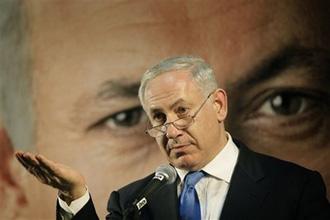World
Impact of Gaza offensive on Israeli election
WATCH VIDEO
Some analysts in Israel attribute the loss to the fact that people expected Livni to work as foreign minister to buy more time from the international community for Israel's operation.
 |
| Likud Party leader Benjamin Netanyahu speaks during an election campaign event in Tel Aviv, Israel, Wednesday, Feb. 4, 2009.(AP Photo/Ariel Schalit) |
But they now blame her for what they consider to be a premature end to the war, with the goal of stopping the capacity of Hamas to launch rockets, unaccomplished.
Livni has called on voters to recognize her role in the offensive.
Tzipi Livni, Kadima Party Leader, said, "It's quiet in Sderot. We are here together, sitting and relaxed. There won't be an alarm. That's the victory picture of the operation. That will be our victory picture in the February 10th election."
But polls suggest that neither Barak nor Livni will gain enough to defeat their main rival, Benjamin Netanyahu.
Analysts say Netanyahu's center-right Likud party has also taken votes away from Livni, because the population has moved to the right -- common during any war.
Likud has kept a steady projected number of 30 seats, the most of any party, in polls.
Israelis vote for parties, not for candidates.
The 120 seats in the parliament are divided among the parties in proportion to the votes they get.
And the leader of the largest party is chosen to form a new government with a coalition needed to exceed a 60 seat majority.



